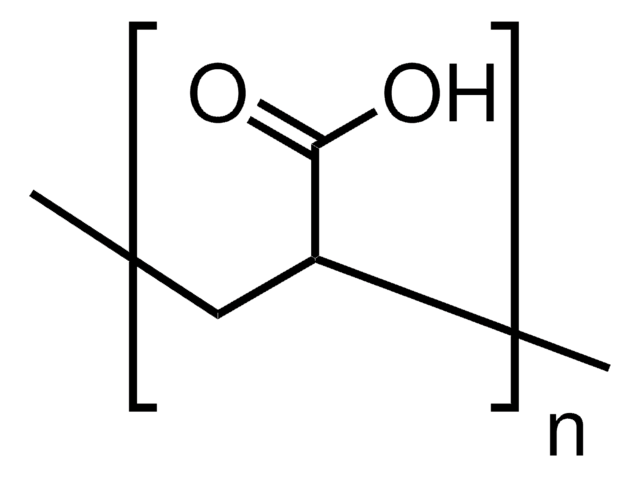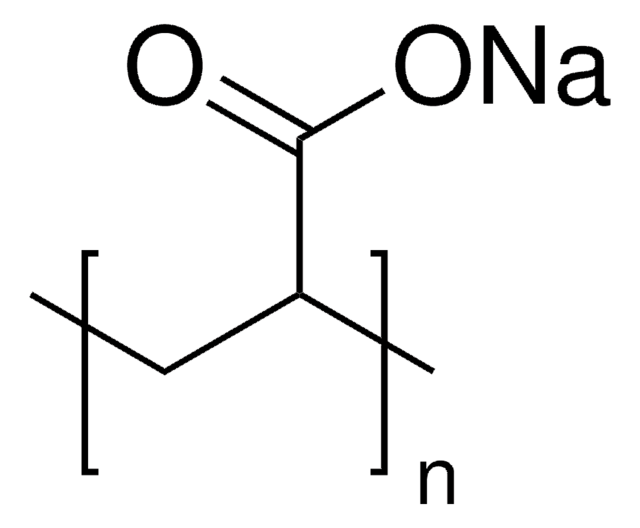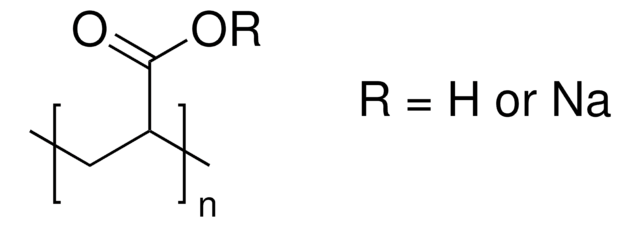181285
Ácido poli(acrílico)
average Mv ~450,000
Sinónimos:
PAA
About This Item
Productos recomendados
crosslinking
~0.1 % cross-linked
Quality Level
mol wt
average Mv ~450,000
viscosity
350-2500 cP
transition temp
Tg 106 °C
SMILES string
[Na+].[O-]C(=O)C=C
InChI
1S/C3H4O2.Na/c1-2-3(4)5;/h2H,1H2,(H,4,5);/q;+1/p-1
InChI key
NNMHYFLPFNGQFZ-UHFFFAOYSA-M
¿Está buscando productos similares? Visita Guía de comparación de productos
Categorías relacionadas
General description
Application
Other applications may include:
- to study solute diffusion in Polyvinyl alcohol/PAA copolymer hydrogel
- synthesizing poly(N-isopropylacrylamide)-block-PAA copolymer which responds to both temperature and pH stimuli
- in preparing block copolymer of oligo (methyl methacrylate)/PAA for micellar delivery of hydrophobic drugs
- as thickening agent for adhesives.
Storage Class
11 - Combustible Solids
wgk_germany
WGK 1
flash_point_f
Not applicable
flash_point_c
Not applicable
Elija entre una de las versiones más recientes:
¿Ya tiene este producto?
Encuentre la documentación para los productos que ha comprado recientemente en la Biblioteca de documentos.
Los clientes también vieron
Artículos
New methods for materials fabrication at the micro- and nanoscale will drive scientific and technological advances in areas of materials science, chemistry, physics, and biology. The broad diversity of potentially relevant materials, length scales, and architectures underscores the need for flexible patterning approaches. One important example is the fabrication of 3D periodic structures composed of colloidal, polymeric, or semiconductor5 materials.
Global Trade Item Number
| Número de referencia del producto (SKU) | GTIN |
|---|---|
| S51102-1EA | |
| 181285-10KG | |
| 181285-250G | 4061838755209 |
| 181285-5G | 4061838755216 |
| 181285-100G | 4061835561551 |
Nuestro equipo de científicos tiene experiencia en todas las áreas de investigación: Ciencias de la vida, Ciencia de los materiales, Síntesis química, Cromatografía, Analítica y muchas otras.
Póngase en contacto con el Servicio técnico


